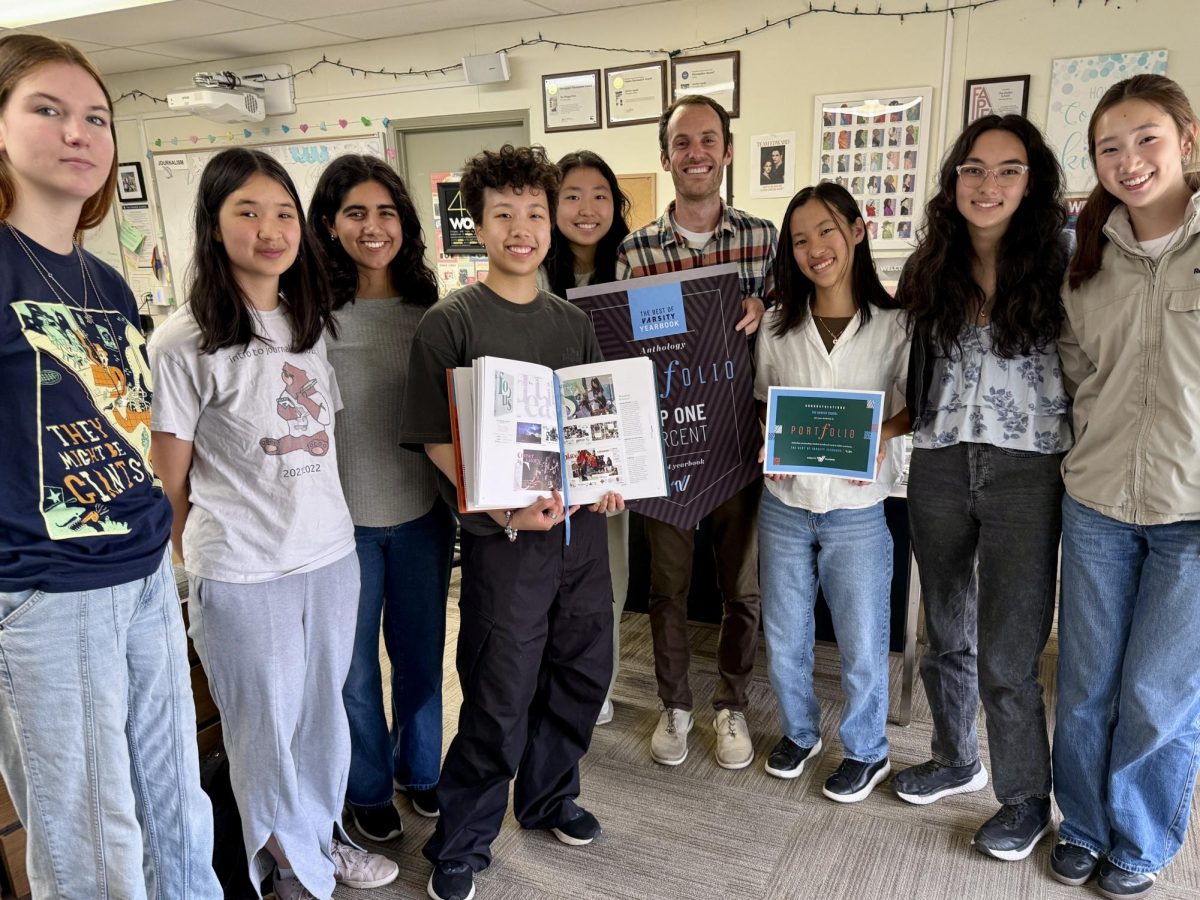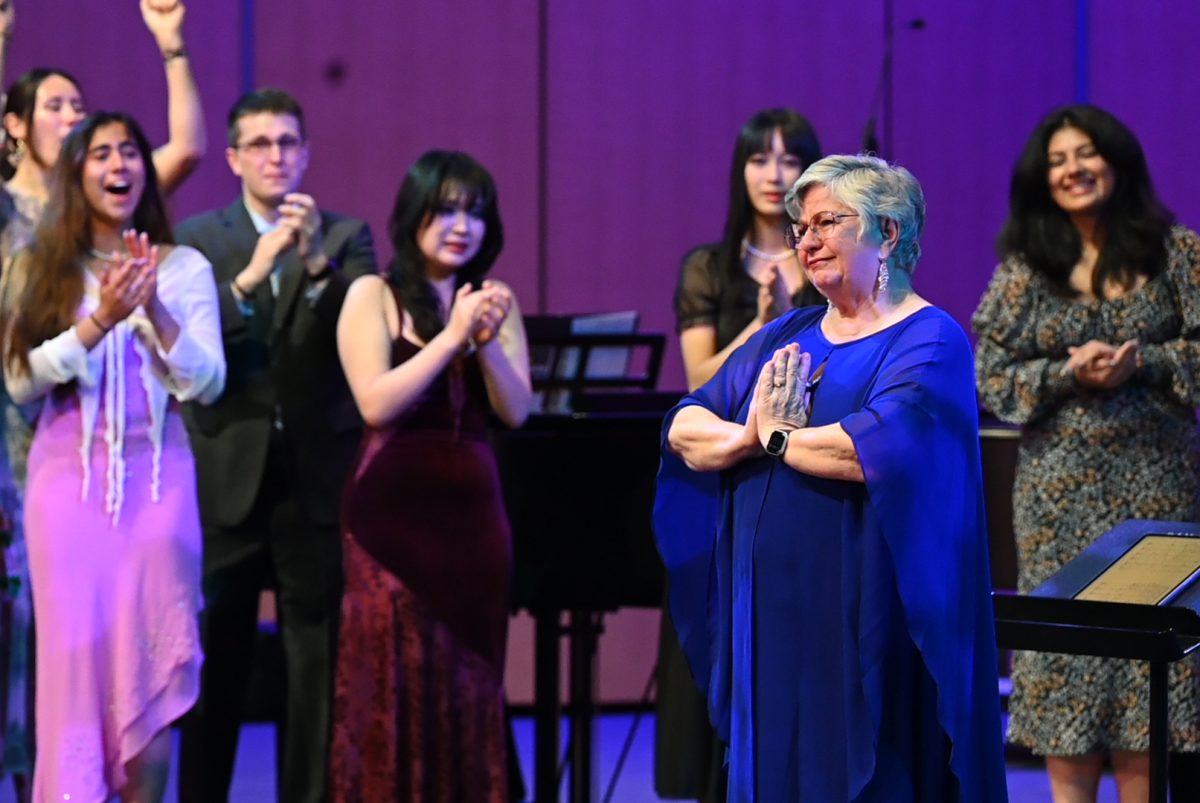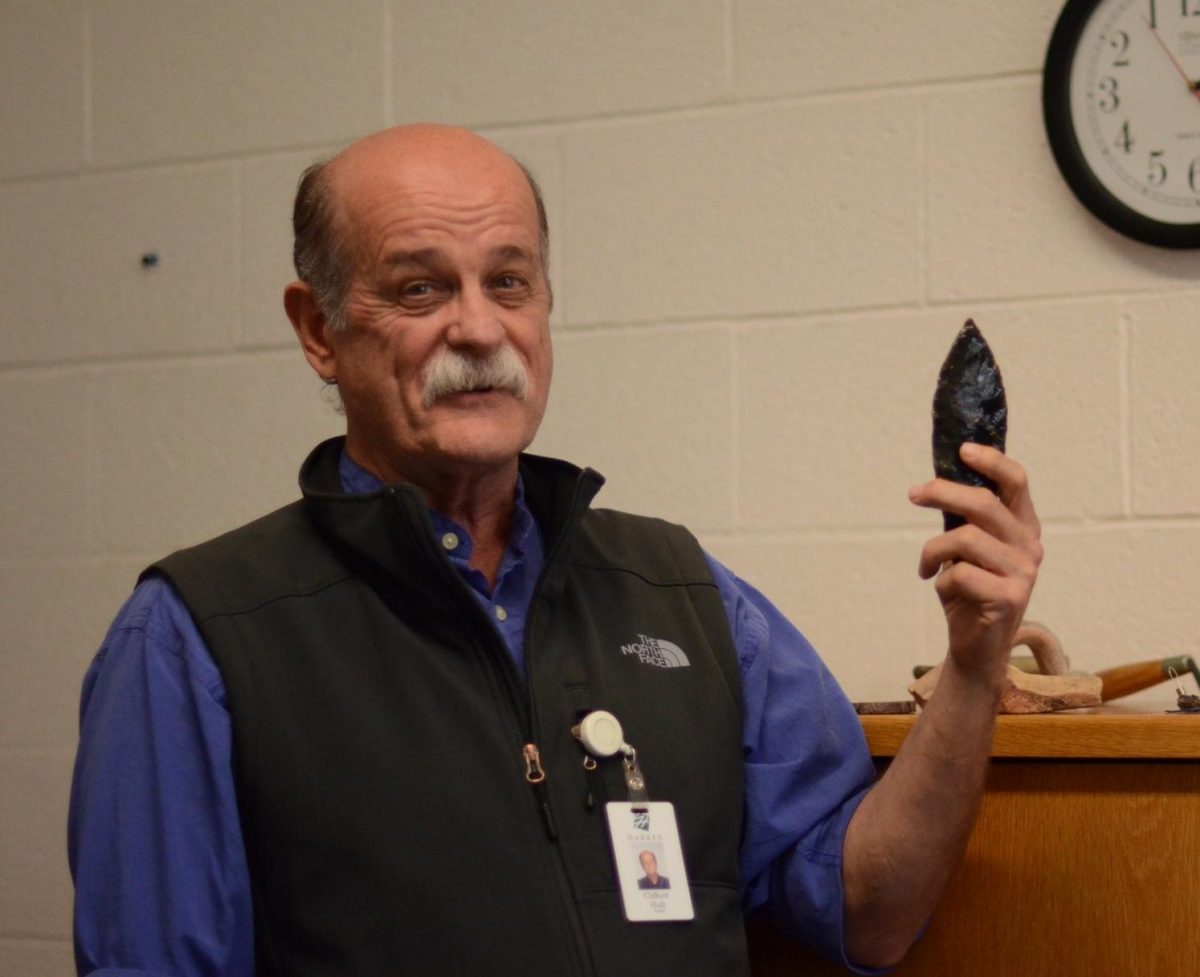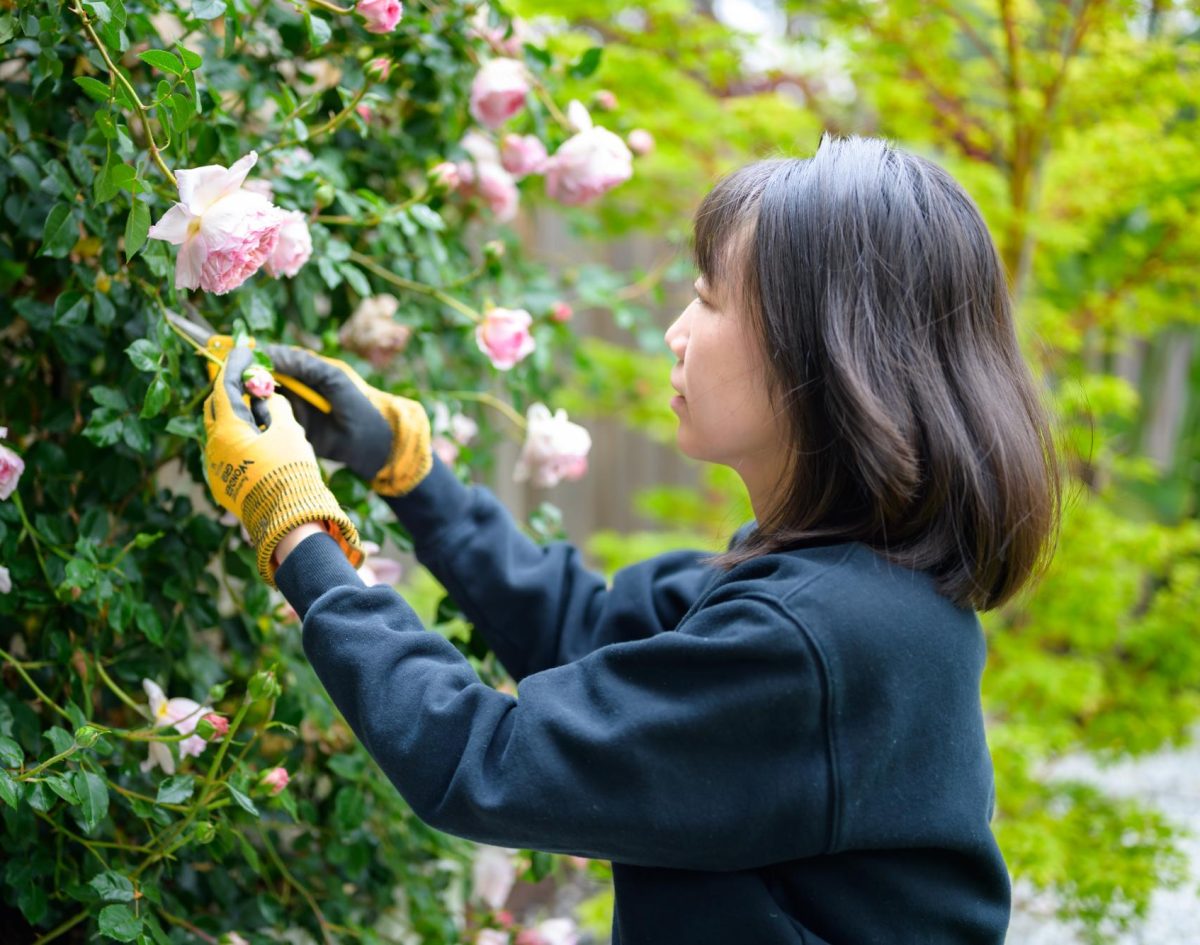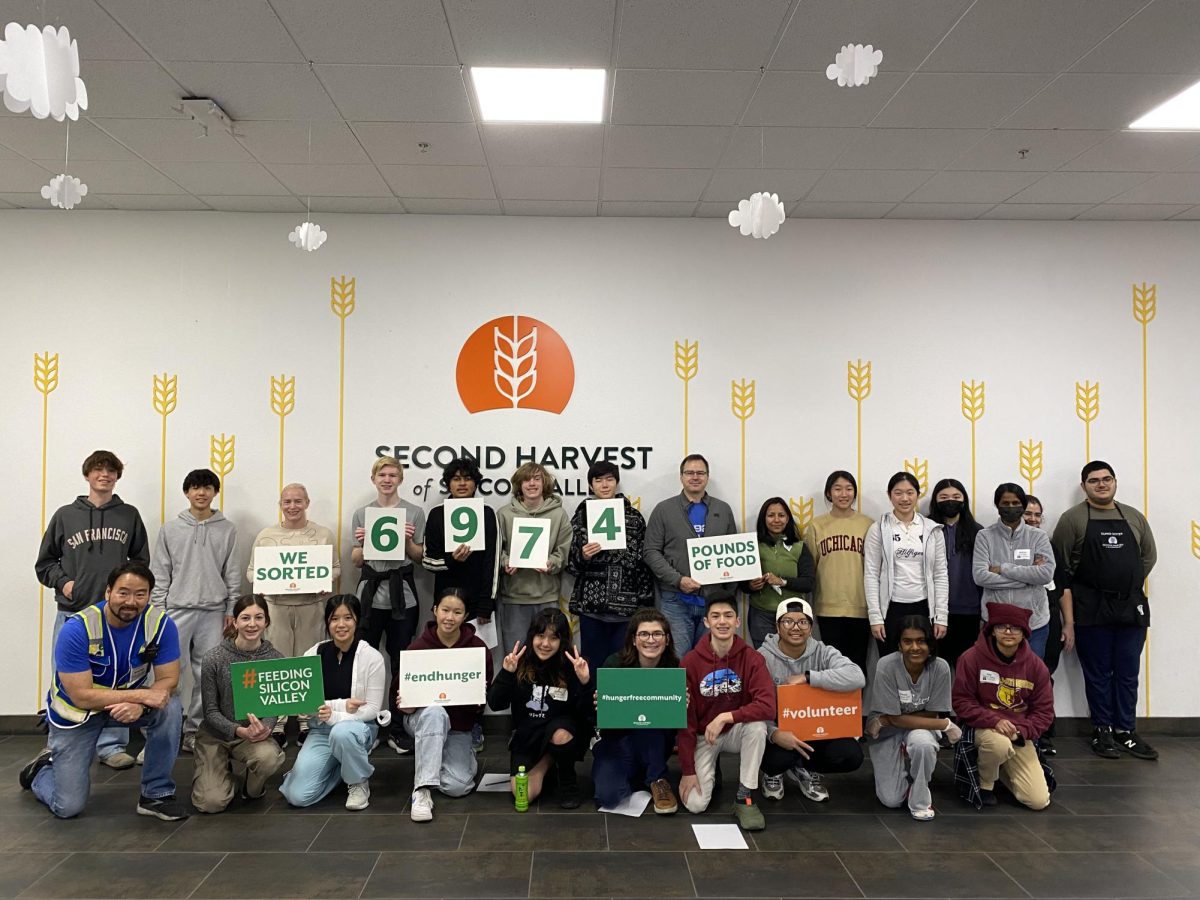The Harker School started in 1893 as a union of the Palo Alto Military Academy and Harker Day School. Although the school dropped its military program, the underlying values of leadership, morals, and character still remain. The Upper School honors citizens who choose to devote their lives to service to their country, as some faculty members have military backgrounds.
Veteran Mary Ann Rich has displayed the underlying values the school is based upon during early experiences with the Vietnam War through her deployment in the Iraq War.
Constant pressure in the war zone. Medical emergencies day and night. Operating rooms with the smell of blood roasting in the heat. An atmosphere of stress and urgency relentlessly looming overhead.
This is nothing new for army nurse Mary-Ann Rich, a veteran of the Iraq War. Rich was mobilized for Iraq in June 2006 as the Chief of the Operating Room and Central Materials Services. She also held the titles of Infection Control Officer and also Hospital Liaison to the Provincial Reconstruction Team before returning to the United States in October 2007.
Raised in Southern California, Rich is the youngest of siblings in her family. She did not have a good relationship with her siblings since she was treated as the “baby” of the family.
“I felt I didn’t get along very well with them because they were very introverted and I was very extroverted,” she said.
Because she had a passion for ballet, Rich dreamed to become a ballerina. However, she was told by her instructor that she couldn’t because she “didn’t have the right body type”. She needed a “straight up and down figure.” Her fighting personality allowed her to achieve anything she set her mind to; she decided to pursue a career in the military.
“The Vietnam War was going on at the time so I decided that I wanted to be an army nurse,” she said.
Rich spent four years at the Walter Reed Army Institute of Nursing and joined the army during the Vietnam Era. Soon after, she served three years in active duty at Letterman Army Medical Center in San Francisco. After spending many years dealing with personal tragedies including divorce, her father’s death, and her daughter’s struggle with bone cancer Rich resumed nursing.
During the several months she was deployed in Iraq, Rich had some truly memorable experiences.
“There was really never a typical day,” she said. Day or night, her unit would perform emergency surgery on the newly wounded. When there were no new wounds to be treated, the unit would treat those returning to surgery. These patients were generally Iraqi because the American soldiers and contractors were sent back to the United States.
“We had no idea when we would be awakened to go to work. When we woke up, we didn’t know if it was going to be quiet or busy,” she said.
Rich believes her “fighter personality got her through being in the battle zone.” With a positive outlook, she always went about the extra steps to solve problems most people would walk away from.
“I am not someone who is just an absolute fantastic dreamer who is really out there. I think the average thought. So if I can think it, it can be done,” Rich said.
One instance was when she signed over refrigerator trucks for the IT (Information Technology) Unit to protect their computers from the heat. Rich also pushed really hard to get some equipment and processes the surgery room “really needed to get”. This would help save soldiers’ limbs, get them out of the hospital faster, and help them to heal faster.
“If you have an idea, just keep finding ways to solve the problem. That’s my attitude,” she said.
Because Rich was in a medical unit, she did not face many gender obstacles. That did not mean that there were no differences—all her staff were males and they left her out of social events such as going to the gym.
“They had been buddies and did things together, so they didn’t consider me part of the group. So in that sense it was different.”
This is different from what history teacher Carol Zink experienced. As a woman in the navy from the 1970s onwards, Zink felt that she needed to over-prove herself just to be treated like her male counterparts.
“It’s not that people were trying to trip me up or hated having women in the service or hated me personally,” Zink said. “It was just something new and different. And they were unsure. So I had to show them that it was okay and they could count on me.”
She continued to compare joining the navy to joining a good soccer team; the team will pass you the ball once they are confident you will be able to pass back. However, Zink recognizes that opportunity and responsibility for women is always expanding.
Throughout her deployment in Iraq, Rich did not “know that she felt afraid when she was there.” She thought that she was the right person to be there because of her age, experiences, and accomplishments. During times of danger, she simply “followed instructions and went with the training.”
Because her children were already adults, Rich didn’t hesitate leaving them during her deployment. She kept in touch through emails, which she would consider a type of journal. However, she also had a separate diary to record “awful things that happened.”
Rich and her unit had to come up with ways to cope with the high levels of stress. One cannot just give up or quit while on active duty in the military. According to Rich, it was “not a choice of staying, but rather a choice of how you would tolerate staying.” Her unit controlled stress by joking around in the operating room. They had “sick humor” as well: Rich recalled an incident where she had been asked if she could give a hand to a fellow comrade. As she had just amputated an arm, Rich pulled it out of the bucket and handed it over.
“Most people would not find that funny, but that was our humor,” she said.
For Rich, the most rewarding aspect of working in Iraq was getting to know the local people. Along with treating wounded Iraqi soldiers, she also collaborated with Iraqi firemen and student nurses.
“When you see someone who you know you can help and support, it is very rewarding,” she said.
After returning from Iraq, Rich still remembers the country, climate, people, and different battles very vividly. However, her memory of day-to-day existence is foggy because she was busy all of the time. Rich misses walking to work and having meals and laundry taken care for her. It made the many hours she worked there much easier.
“Coming home and having to decide what to fix to eat is really a big deal,” she said.
Upon reaching home, Rich was diagnosed with Post Traumatic Stress Disorder. She does not agree that her bad childhood predisposes her to the syndrome; rather, she believes that her constant fighting personality has really had an impact on her.
Reading is one way to reduce stress, and Rich likes books that not only discuss history, but also teach; sometimes, she even picks up textbooks. For fun, she also enjoys murder mysteries. Exercising, writing, and socializing with other veterans also help reduce Rich’s stress. Veterans from the Upper School said that having a spiritual life, reading, and working out seemed effective methods for some of their comrades.
Rich believes that the entire school community can work together to reduce stress in students. If people within a group watch out for changes in each other’s behavior, they can catch initial signs of stress that others mat not see. She also suggests that a buddy system can prevent people from becoming severely depressed as a result of social isolationism.
“Make sure people aren’t alone. People get singled out very easily, not just in high school, but throughout life,” she said.
Rich emphasizes that students should not always try to be different. They should know what is right for themselves, stick to it, and help others.
Rich said, “You are a human and part of that is being part of community. You can’t do it by yourself; you need to support others. And in turn they will support you.”


















![“[Building nerf blasters] became this outlet of creativity for me that hasn't been matched by anything else. The process [of] making a build complete to your desire is such a painstakingly difficult process, but I've had to learn from [the skills needed from] soldering to proper painting. There's so many different options for everything, if you think about it, it exists. The best part is [that] if it doesn't exist, you can build it yourself," Ishaan Parate said.](https://harkeraquila.com/wp-content/uploads/2022/08/DSC_8149-900x604.jpg)




![“When I came into high school, I was ready to be a follower. But DECA was a game changer for me. It helped me overcome my fear of public speaking, and it's played such a major role in who I've become today. To be able to successfully lead a chapter of 150 students, an officer team and be one of the upperclassmen I once really admired is something I'm [really] proud of,” Anvitha Tummala ('21) said.](https://harkeraquila.com/wp-content/uploads/2021/07/Screen-Shot-2021-07-25-at-9.50.05-AM-900x594.png)







![“I think getting up in the morning and having a sense of purpose [is exciting]. I think without a certain amount of drive, life is kind of obsolete and mundane, and I think having that every single day is what makes each day unique and kind of makes life exciting,” Neymika Jain (12) said.](https://harkeraquila.com/wp-content/uploads/2017/06/Screen-Shot-2017-06-03-at-4.54.16-PM.png)








![“My slogan is ‘slow feet, don’t eat, and I’m hungry.’ You need to run fast to get where you are–you aren't going to get those championships if you aren't fast,” Angel Cervantes (12) said. “I want to do well in school on my tests and in track and win championships for my team. I live by that, [and] I can do that anywhere: in the classroom or on the field.”](https://harkeraquila.com/wp-content/uploads/2018/06/DSC5146-900x601.jpg)
![“[Volleyball has] taught me how to fall correctly, and another thing it taught is that you don’t have to be the best at something to be good at it. If you just hit the ball in a smart way, then it still scores points and you’re good at it. You could be a background player and still make a much bigger impact on the team than you would think,” Anya Gert (’20) said.](https://harkeraquila.com/wp-content/uploads/2020/06/AnnaGert_JinTuan_HoHPhotoEdited-600x900.jpeg)

![“I'm not nearly there yet, but [my confidence has] definitely been getting better since I was pretty shy and timid coming into Harker my freshman year. I know that there's a lot of people that are really confident in what they do, and I really admire them. Everyone's so driven and that has really pushed me to kind of try to find my own place in high school and be more confident,” Alyssa Huang (’20) said.](https://harkeraquila.com/wp-content/uploads/2020/06/AlyssaHuang_EmilyChen_HoHPhoto-900x749.jpeg)



